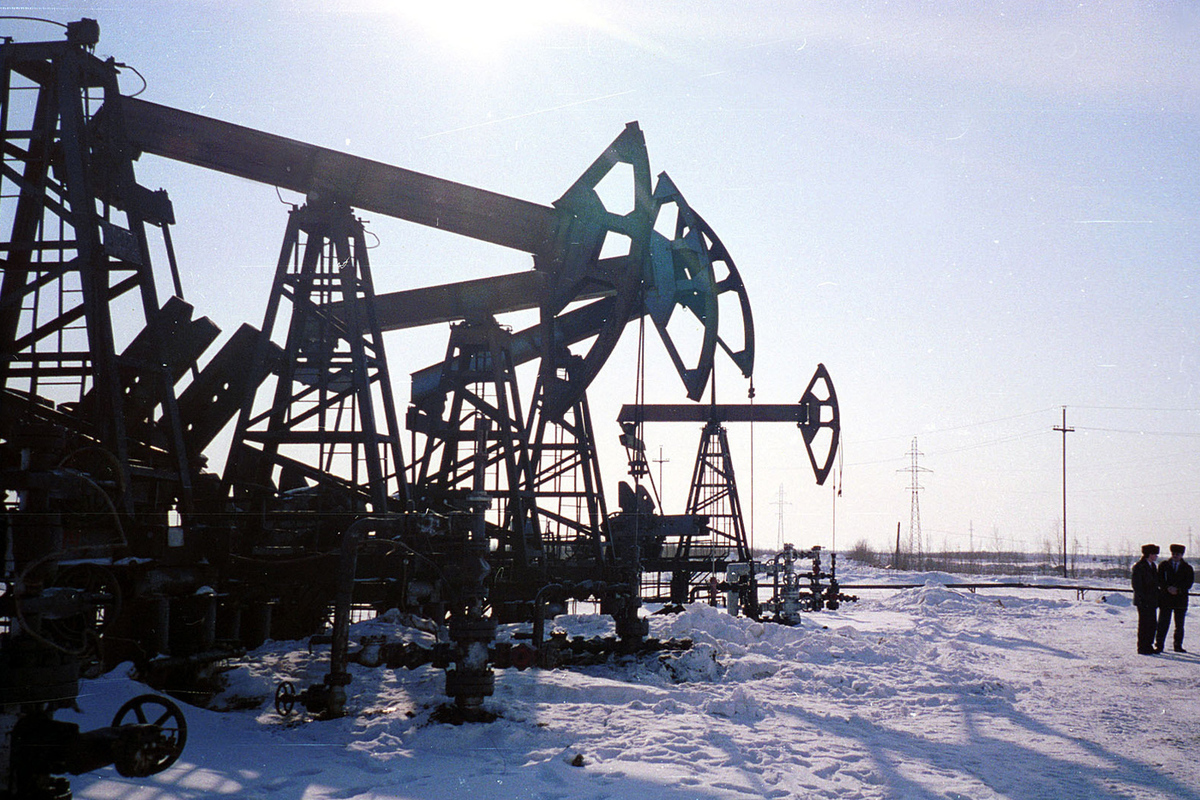Oreshkin called the contribution of the raw materials sector to GDP “zero”: what’s wrong with oil and gas production
[ad_1]

Expert Suverov: “The segment continues to provide up to 50% of budget revenues”
The domestic mining industry failed the domestic economy last year—its contribution to strengthening Russia’s financial condition, according to presidential aide Maxim Oreshkin, was at zero level. We should not expect rapid growth in demand for “black gold” in the near future, so it is better to focus on more targeted production, in particular, hydrocarbon processing. According to Sergei Suverov, investment strategist at Arikapital Management Company, associate professor at the Financial University under the Government of the Russian Federation, this opinion is supported by all participants in the Russian energy market, but there are many obstacles to achieving this task.
– Are oil and gas no longer donors to the federal budget?
– Last year, Russia’s oil and gas revenues decreased by about a quarter, to 8.8 trillion rubles. Western sanctions nevertheless led to a negative effect. Exporting oil and gas comes with ever-increasing risks and costs. We have learned to sell liquid hydrocarbons by circumventing Western sanctions: we arrange supplies using a “shadow” tanker fleet, which allows us to supply Russian barrels at prices much higher than the G7-approved cost “ceiling.”
Foreign shipments of “blue fuel” have also undergone changes. Traditional supplies of pipeline gas have decreased due to sabotage at Nord Stream, as well as due to questionable refusals by Ukraine to provide transit through its own gas transportation networks. The growth in energy consumption in Asia is reorienting domestic producers to the east, the demands of the countries of which are not only increasing, but are also provided with reliable foreign exchange support. China and India pay regularly for imported resources. The same can be expected from Mongolia and Pakistan, which are extremely interested in Russian energy resources.
– Can the reasons that objectively explain the reduction in oil and gas revenues of the Russian budget be called progressive and irreparable?
– It is too early to write off domestic oil and gas production, because this segment continues to provide up to 50% of federal budget revenues. No one disputes that a share of revenue from such fundamental pillars of our economy as the extraction and sale of raw materials supports the country’s financial system even in the most difficult times from a geopolitical point of view. But it’s hard to disagree with Oreshkin’s words: Russia needs to develop not only the manufacturing sector, which collapsed due to Western restrictive sanctions, but also try to occupy new promising sales niches that are currently emerging on the international market.
– What is missing? As always, money?
– At the beginning of November, Energy Minister Nikolai Shulginov said that primary oil refining by the end of 2023 will increase by about 2%. At the same time, it is known that in 2022 the volume of oil refining in our country decreased by 3%. The need to invest in this fuel component is growing every day. In November, Deputy Prime Minister Alexander Novak said that investments in the modernization of oil refining plants in Russia until 2028 will amount to about a trillion rubles. I would like to believe that such predictions will come true. Our country now exports significant volumes of finished fuel to China and India. Beijing and New Delhi are happy to purchase Russian finished motor fuel for subsequent processing at their own enterprises. In fact, the main thing for Russia at the moment is to make a choice: invest in refining capacities, despite the fact that the export of petroleum products is under Western sanctions, but in theory it will bring additional profit; or concentrate on the production of crude hydrocarbons that can be sold to countries that do not impose sanctions in order to generate significant income “here and now.”
– And what choice should we make?
– Of course, investing in the production of higher-quality, in-demand and expensive products is beneficial for the future. However, Russia, faced with a budget deficit, will have to assess how much real cash is needed right now.
– What needs to be done for the technological development of the mining industry?
– First of all, purchase equipment to replace already worn-out technological systems. The West has refused to provide Russian production with modern components. For two or three years, domestic mining companies lived on old reserves. Now we will have to turn to Chinese suppliers, whose products from a technological point of view are not always suitable for Russian manufacturers. There will also be a shortage of personnel for specialists capable of servicing modern technological innovations. I think that, as always, there will be a solution to these problems, but for this we will need time.
[ad_2]
Source link






